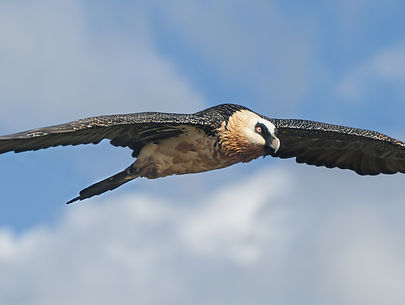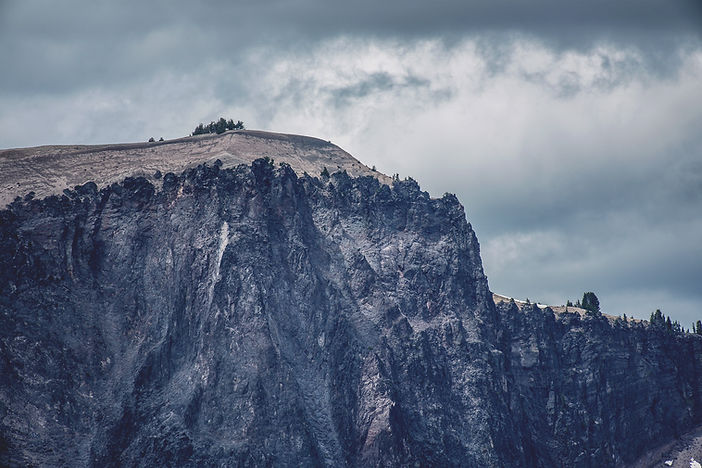

The bearded vulture, also known as the lammergeier, is a large species of vulture that can be found in Ethiopia, Asia, and Europe. They belong to the family of Old World vultures. The Old World vultures are any species of vulture that come from Africa, Europe, and Asia. Like all vultures, these are scavengers, which means that they eat what is dead. Their diet can consist of almost 100% bones from dead animals. They also enjoy the marrow on the inside of them. To get to the marrow, the vulture must rely on its ingenuity. With a bone in the grip of their claws, they will fly high above a patch of rocks and drop the bones on the stones, shattering them. After that, they will return to the ground and eat the bone marrow along with the bones. Besides bones, they will also eat small lizards from time to time.
Threats
Bearded vultures do not have any natural enemies. Humans are the only actual threat to vultures. Habitat loss, lack of food, and poisoning have put the population of these birds in great danger. At the same time, though, they are being reintroduced to areas where they have gone extinct in the past. Today, people are enlightened about their true nature, and common myths that led to them nearly being wiped out in many areas are finally being discredited.
Physical Characteristics
The vulture's wingspan can reach an impressive 8 feet. Their strong feet and sharp claws allow them to hold on to large bones while flying. In addition, their powerful wings allow them to ride thermal currents in the air to soar above cliffs to spot a meal with their well-developed eyesight. The bearded vulture earned its name because its feathers resemble a trim beard at the end of its beak.
Flying
%2C%20als.jpg)
Many bird species must continually flap their wings to gain altitude. However, unlike other birds, the bearded vulture can soar through the air without flapping its wings. Instead, thermal currents help lift the vulture higher into the sky while holding its wings in a fixed position. This way of flying helps them conserve energy and allows them to fly for long periods. In addition, gliding serves as a great advantage when surveying territory for food.
Importance
Vultures have a positive impact on their environment that goes very much unnoticed. Their role as being scavengers serves as protection for other creatures that overlap territory. Vultures are one of nature's most outstanding clean-up crews. Eating the carcasses of dead animals reduces the risk of diseases spreading to animals such as rabies. With fewer vultures in an environment, animals will contract more illnesses along with humans potentially. Dead meat from deceased animals will only sit and slowly rot without vultures to eliminate the mess.
In recent years, bearded vultures have been released in areas where their population is in danger, thanks to the kind and helpful researchers that monitor them. With these efforts being made, it is hoped that the population will greatly increase in time and produce a healthy amount of vultures to survive for future generations to enjoy.
Appearance
For bearded vultures, there is no easy way to distinguish a male from a female. They are not sexually dimorphic like many other birds.
